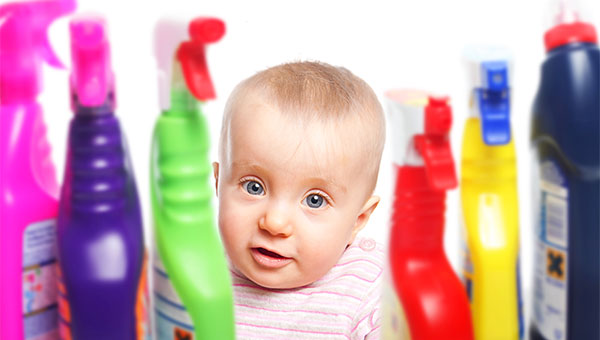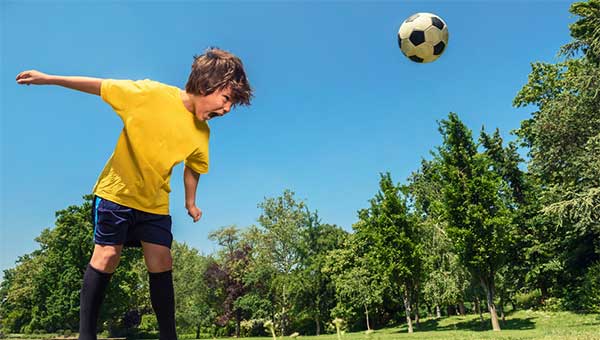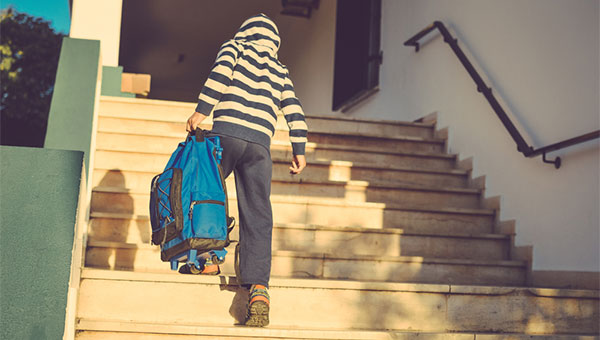From expired medications in easily opened bottles to household chemicals and carbon monoxide, there may be hidden dangers throughout your home. Many of you may have heard about the “Tide Pod Challenge,” which is causing a spike in poisonings. Every year, the third week in March is National Poison Prevention Week, which highlights ways to prevent accidental poisoning of children and adults in your home. The American Association of Poison Control Centers and the Centers for Disease Control and Prevention have provided the following safety tips to prevent accidental poisonings:
Medicines and Drugs
- Take only the prescription medications that a health care professional prescribes to you
- Do not sell or share your prescription medications
- Store these medications in a safe spot – out of sight and out of children’s reach – that is only accessible to the person taking or giving them: prescription drugs (particularly prescription painkillers, including those with hydrocodone, methadone or oxycodone); vitamins and herbal medicines; and over-the-counter medications (including cough and cold medicines and fever or pain relievers)
- When you take or give medicines, follow the directions on the label; read all warning labels, including warnings of food and drug interactions; and store the medicines safely right away
- Do not place your next dose of medicine on a table or counter where a child could reach it, and do not call any medicine “candy”
- If you have to answer the phone or do something else while taking your medicine, take your young children with you
- After taking your medicine, check that you have secured the child safety cap
- Keep your medications in their original containers or bottles
- Do not take more frequent or larger doses of your medicines – especially prescription pain medication
- When you take or give medicines at night, turn on a light to ensure you have the correct medicine and the right amount
- Closely monitor your children and teenagers’ use of prescription medicines, like those prescribed for attention deficit hyperactivity disorder (ADHD)
- Be cautious and check with house guests about any medications they might bring into your home; ask them to store them out of children’s reach
- Properly dispose of expired, unused or unneeded prescription drugs
Household Chemicals, Carbon Monoxide and Poisonous Plants
- Before you use a product that might be poisonous, always read the label
- Do not mix any household cleaning products together; an example of a dangerous mixture is ammonia and bleach, which could produce toxic gases
- Open windows or turn on a fan when you use household cleaners or other chemical products
- Keep any chemical products in their original containers or bottles, and do not store beauty products or cleaning solutions in food containers, including jars, bottles and cups
- Store household cleaners, laundry detergents/pods and other chemicals after use and out of reach of children
- If you spray pesticides and other chemicals, wear protective clothing such as gloves, shirts with long sleeves, long pants, socks and shoes
- Learn to identify any poisonous plants in your home and yard; remove them or keep them out of children’s reach
If a Poisoning Occurs:
- Stay calm
- If you have a poisoning emergency and the victim is not breathing or has collapsed, call 911
- If the victim is alert and awake, call the Poison Help number, 1-800-222-1222, which is available 24/7; place it next to every landline and add it to your cell phone contact list
- When you call, try to have the following information ready:
- Age and weight of the victim
- The bottle or container of the poison if it’s available
- The time of the person’s exposure to the poison
- The address where the poisoning happened
Remain on the phone and carefully follow the instructions from the poison control center or emergency operator




